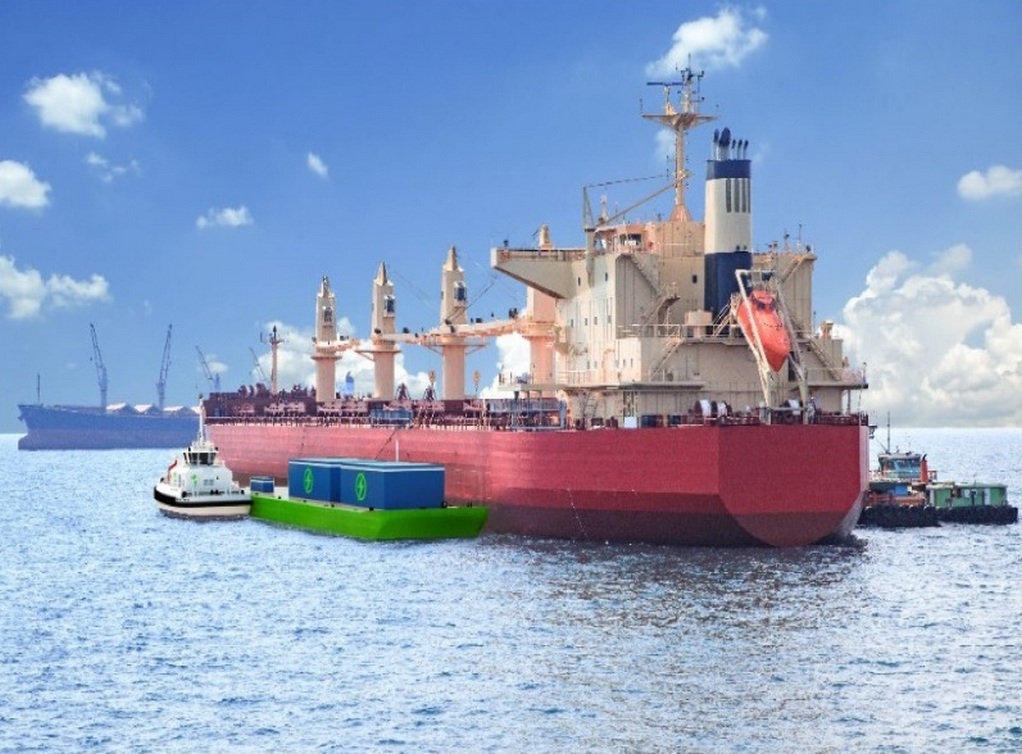Seattle-headquartered Elliott Bay Design Group (EBDG) has designed a harbour power and charging barge that offers ports and harbours and a cost-conscious and high-performing option to minimize emissions from large vessels both pier side and at anchor.
Delivering 7 megawatts (MW) of continuous power generated by methanol, the floating mobile platform is designed to be capable of cold ironing even the most demanding vessels both at the pier and at anchor for up to two weeks before refuelling.
In addition, the power barge can do double duty as an “in-field” DC charging station for electric harbour tugs and other smaller service vessels. An independent ultra-low emission and nearly silent 1 megawatt system with 10 megawatt-hours (MWh) of reserve capacity continuously replenishes its reserve to provide fast charging capacity on-demand directly in the operating field of the vessels it serves. There’s no need for vessels to spend time and waste energy running to and from the dock, and no need for pier side charging infrastructure.
The power barge is equipped with a Wärtsilä W32M Tier IV methanol generator for cold ironing and features e1 Marine’s M30 hydrogen reformer technology coupled with PowerCell’s PS-185 Fuel Cell system for fast charging. EBDG says this unique combination of commercially available technologies offers exhaust emission reductions of over 70% compared with conventional diesel at equivalent power. Zero full cycle emission is also achievable with an optional Wärtsilä carbon capture system and certified green methanol fuel.
The technology is integrated into a barge platform less than 225 feet in length. Double hull protection of the methanol storage tanks, T1(b) classification by Lloyd’s Register and MARPOL 21.1.2 compliance, further optimize its safety and environmental benefits.
Tags: Charging Barge, EBDG, Harbour, Methanol



Recent Posts
IMO leads global shipping toward NetZero transition with new regulations
MPA and Bureau Veritas Renew Partnership to Advance Maritime Digitalisation, Decarbonisation, and Talent Development
RINA Grants AIP for Dual Fuel LNG/Hydrogen-Powered Ultramax Bulker Design Developed by Almi Marine Management S.A. and SDARI
NH3 Clean Energy, Pilbara Ports and Oceania Marine Energy sign a Joint Development Agreement for the establishment of lowemissions ammonia bunkering operations
DP World advances green logistics with electric freight expansion at Jebel Ali Port
Yinson GreenTech and RMS Marine Partner to Advance Marine Electrification in Singapore
Two Damen Combi Freighters Launched for Fast Lines Belgium in China
Viking Line Unveils Concept for World’s Largest Fully Electric Passenger-Car Ferry